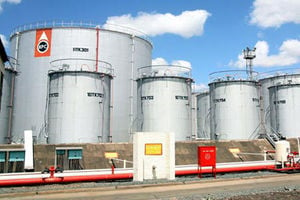
At least Sh5.4 billion was irregularly passed on to consumers by Oil Marketing Companies (OMCs) in demurrage charges.
At least Sh5.4 billion was irregularly passed on to consumers by Oil Marketing Companies (OMCs) in demurrage charges through high pump prices and inclusion of administrative costs for stabilization according to a special audit by Auditor-General Nancy Gathungu.
The special audit, before Parliament, covering the period April, 2021 to June 30, 2022, notes that the irregularities could have been used by government officers in collusion with OMCs as avenues where public funds may have been swindled either by omission or commission.
The audit reveals that the Sh3.2 billion in irregular demurrage charges that was charged on consumers through pump prices, was in violation of Regulation 4 of the Energy (Petroleum Pricing) regulations of 2010.
This puts the Energy and Petroleum Regulatory Authority (EPRA) Director-General in a spot. Curiously, out of the irregular demurrage charges, Sh37.32 million did not meet the criteria set out in the Transport and Storage Agreement (TSA) for recovery through the pump as the vessels offloaded within the provided three days.
The auditors blamed the questionable inclusion of Sh2.21 billion in administrative costs for the stabilisation of pump prices on the Principal Secretary of the then Ministry of Petroleum and Mining and the EPRA Director-General.
The audit discloses that the government established a demurrage multi-sectoral committee that had representatives from the Ministry of Energy, OMCs and Kenya Pipeline Company Limited (KPC) to deliberate, approve and recommend amounts to be charged as either local or transit demurrage costs.
Public funds
“The stabilisation was not anchored on any law, directive or circular and the committee formed to develop the stabilization mechanism was never gazetted, formalized or legalized,” the special audit reveals.
This legal gap means that the deliberations emanating from the multi-sectoral committee may not legally form a basis for committing public funds.
“The deliberation for the meeting covered only one month and there were no similar meetings in the subsequent months or a rider that the conditions set for the first month shall apply until further review,” reads the special audit.
While the approved demurrage charges were to be passed on to the consumer through pump price adjustment, the audit says; “there were no petroleum pump prices stabilization guidance in existence before the stabilization was commissioned or effected.”
Compensation to importers
“The audit established through the multi-sectoral committee minutes that the main causes of demurrage charges included scheduling inefficiencies, ullage constraints at KPC receiving facilities and change of vessel arrival dates by importers,” the audit reveals.
The TSA provides for compensation to importers of petroleum products for demurrage charges paid to the ship owners for delays in vessel berthing exceeding three days.
According to the audit, the delays were mainly attributed to vessels being unable to berth on arrival as they had to wait for other vessels to complete discharge of petroleum products.
For instance, analysis of vessels that docked at the Kipevu Oil Terminal (KOT) between April 2021 and June 2022 indicated that 130 vessels waited for more than the three days provided for in the TSA.
“On average, the vessels waited for seven days before docking with one vessel recording a waiting time of 185 days,” the audit says.
The audit discloses that at a meeting held on April 15, 2021, between the Ministry of Petroleum and Mining, EPRA and OMCs, it was resolved that cargo importers would charge administrative fee of Sh0.50 per litre.
This was to cater for disbursement, documentation and processing of stabilization funds received from the ministry.
The amount was to be factored in the petroleum pump prices from July, 2021.
However, the rationale of including the stabilization administration costs in the pump price build up, the auditors say, was not justified, “considering the actual charges commercial banks charge for funds transfer.”
Stabilization of petroleum pump prices through the Petroleum Development Fund was implemented from April 2021 to cushion consumers against spikes in petroleum prices mainly attributed to rising global prices and currency exchange fluctuations.
For the period in which the stabilization initiative has been implemented in the country, it has faced challenges emanating from the lack of a framework to guide the stabilization mechanisms.
This led to the use of preceding period data to compensate and stabilize the current period prices, overpayments to legal OMCs and funding delays caused by use of the collected levies for the purpose of non-related activities.










